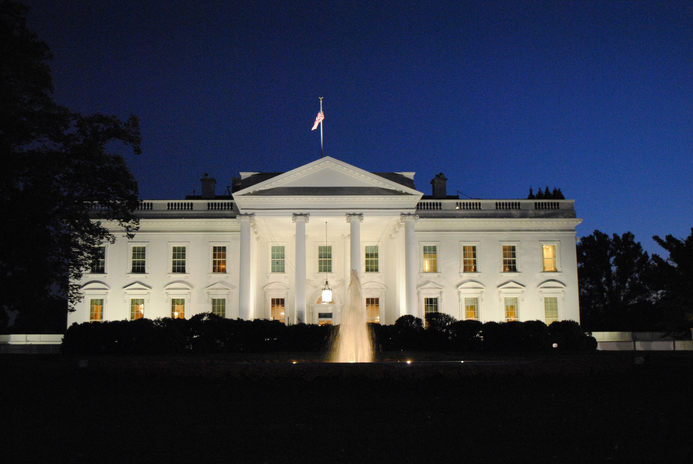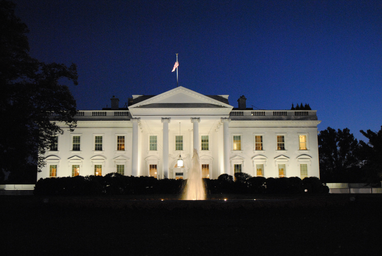In the weeks leading up to the inauguration, President Biden and his transition team wasted no time in assembling their cabinet nominations. And, following the Senate hearings and confirmations for their picks, the Biden-Harris administration is set to be among the most diverse in history.
Most obviously, the new cabinet stands in stark contrast to the previous Trump administration, which filled its positions with demographically wealthy, white men and women with little to no government experience. Now, as demonstrated by his cabinet choices, President Biden has publicly exhibited that the hallmarks of his administration will rest in its diversity and expertise.
Although some cabinet nominees, such as Secretary of the Treasury Janet Yellen and Secretary of Defense Lloyd Austin, have already been confirmed, many are still awaiting Senate approval. Among this group is Alejandro Mayorkas, who has been nominated to head the Department of Homeland Security (DHS) and would be the first Latino to fill the role. Mayorkas will likely be confirmed on Monday, February 1st, after GOP opposition has attempted to stall his confirmation. As the Biden Administration works to undo the policies of the last four years, eyes will be on Mayorkas, who is expected to halt the controversial hardline policies of the Trump Administration. Most notable among these efforts will be his attempt to confront immigration and border control, as well as the aftermath and fallout of the January 6th Capitol riots.
The Department of Homeland Security, created in 2003 following the September 11th attacks, comprises 23 agencies and 6 advisory groups intended to work to protect the “homeland” from various threats, from environmental emergencies to violent non-state actors. The Department, which is the third largest Cabinet department, has grown significantly since its creation, and encompasses a large swath of agencies tasked with confronting various needs.
Under the Trump administration, DHS was the target of significant controversy. Most notably was its policy of “zero tolerance” at the US-Mexico border under then-Secretary Kirsjten Nielsen. The policy of family separation at the border separated hundreds of children from their families and remains one of the darkest lasting legacies of the Trump Administration. Furthermore, incidents like the Border Patrol’s use of tear gas against a caravan of illegal immigrants and the deaths of migrant children held in Border Control custody drew criticism towards hardline immigration policy.
As Mayorkas confronts how to best handle the US-Mexico border and immigration, his own childhood is likely to influence his approach. He was born in Cuba and immigrated to the United States with his family in order to flee Communism. This perspective contributed significantly to his work: “I’m a political refugee, and my identity as a political refugee was extraordinarily important to my upbringing. And my parents were very focused on instilling in me a deep sense of what it means and what it meant to be an individual displaced from one’s home.” This perspective signals that Mayorkas’s policies will focus on undoing the harm the Trump administration inflicted on migrants at the border and will be more willing to grant asylum. White House Press Secretary Jen Psaki has already suggested that Mayorkas, along with First Lady Doctor Jill Biden, will head a task force in order to reunite families along the border.
Mayorkas also has significant expertise in immigration and border security. He began as an assistant United States Attorney in California and was later appointed as United States Attorney for California under President Clinton. Despite a brief respite into private law practice during the Bush administration, Mayorkas was later appointed as the director of United States Citizenship and Immigration Services by President Obama. Under this position, he worked to implement the Deferred Action for Childhood Arrivals (DACA), which allows illegal immigrants brought to the United States as children to receive a renewable two-year period of delayed deportation. Later, he served as Deputy of Homeland Security in the Obama Administration, where he worked to respond to the Ebola and Zika epidemics, was involved in normalizing US-Cuban relations, and focused on cybersecurity.
Border control is not the only task Mayorkas must confront. The recent attacks on the Capitol have placed a focus on the need for public order and safety, and many are looking at Mayorkas to ensure just this. During his Senate confirmation hearing, Mayorkas promised that “the tragic loss of life, the assault on law enforcement, the desecration of the building that stands as one of the three pillars of our democracy, and the terror felt by you, your colleagues, staff, and everyone present, will not happen again.”
Another issue Mayorkas must confront is morale in the DHS, which has been an issue for quite some time. First, the Department faces a handful of financial issues. Second, workers for the DHS, especially along the border, readily accepted the hardline policies under the Trump Administration. This will certainly pose as a challenge once Mayorkas begins to institute more lenient measures, such as asylum approval for border migrants.
Mayrokas’s nomination certainly represents a shift from the policies of the Trump administration and has been welcomed by many Democrats. It remains to be seen how Mayorkas and President Biden will balance border security and how much of the Trump Administration’s DHS legacy they can erase. However, it is certain that Mayorkas will enter the position in Biden’s cabinet with a mission to reconstruct the policies of the last four years and the expertise to guide the DHS in a new direction.



